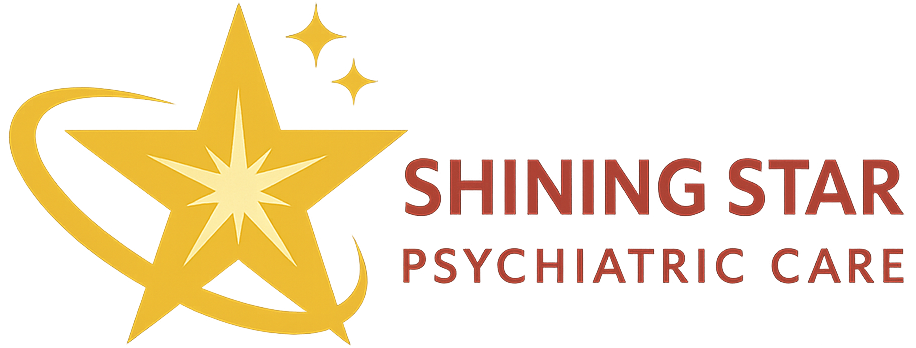
We offer personalized support and treatment for mothers navigating the emotional challenges of the postpartum period, helping you restore balance and begin thriving again.
The period following childbirth can bring profound emotional shifts. For some, rather than simply adjusting, these changes become overwhelming. At Shining Star Psychiatric Care, we recognise that postpartum anxiety and mood disorders go beyond “baby blues” — and we’re here to help you navigate this transition with care, expertise and dignity.

Postpartum anxiety and mood disorders (often grouped under perinatal mood and anxiety disorders, PMADs) encompass a spectrum of emotional, psychological and behavioural experiences that can emerge during pregnancy or within the first year after birth. These disorders may include:
– Postpartum depression (persistent sadness, low energy, lack of interest) .
– Postpartum anxiety (excessive worry, panic, intrusive thoughts).
– Mixed anxiety-depression states, and other mood disorders triggered by the perinatal period.
These conditions are not your fault. They are common, treatable, and you absolutely deserve help, support and recovery.
Although experiences vary, many mothers living with postpartum anxiety or mood disorders will notice patterns of symptoms that may include:
If any of these symptoms persist, worsen or interfere significantly with function or bonding with your baby, it’s time to seek professional help.
There is no one single cause rather, a combination of inter-linked factors that raise risk and shape each person’s experience:
– Hormonal & physical changes: After childbirth, the body undergoes major hormonal shifts, sleep disruption, recovery from delivery or surgery all of which impact mood.
– Psychological & prior history: A personal or family history of depression, anxiety, PMADs, trauma or childhood adversity increases risk.
– Environmental & social factors: Lack of sleep, limited social support, financial/relationship stress, unexpected baby health issues or baby care demands.
– Unprocessed emotions/expectations: The emotional weight of transitioning into parenthood identity changes, expectations vs reality, grief for what was can make women more vulnerable.
– Partner or family dynamic and bonding issues: Difficulty bonding with the baby, partner stress or other family demands amplify risk.
Understanding these helps us tailor treatment and support in a way that addresses both the cause and the symptom.


Start your path to psychological wellness with our thuroughly selected specialists.